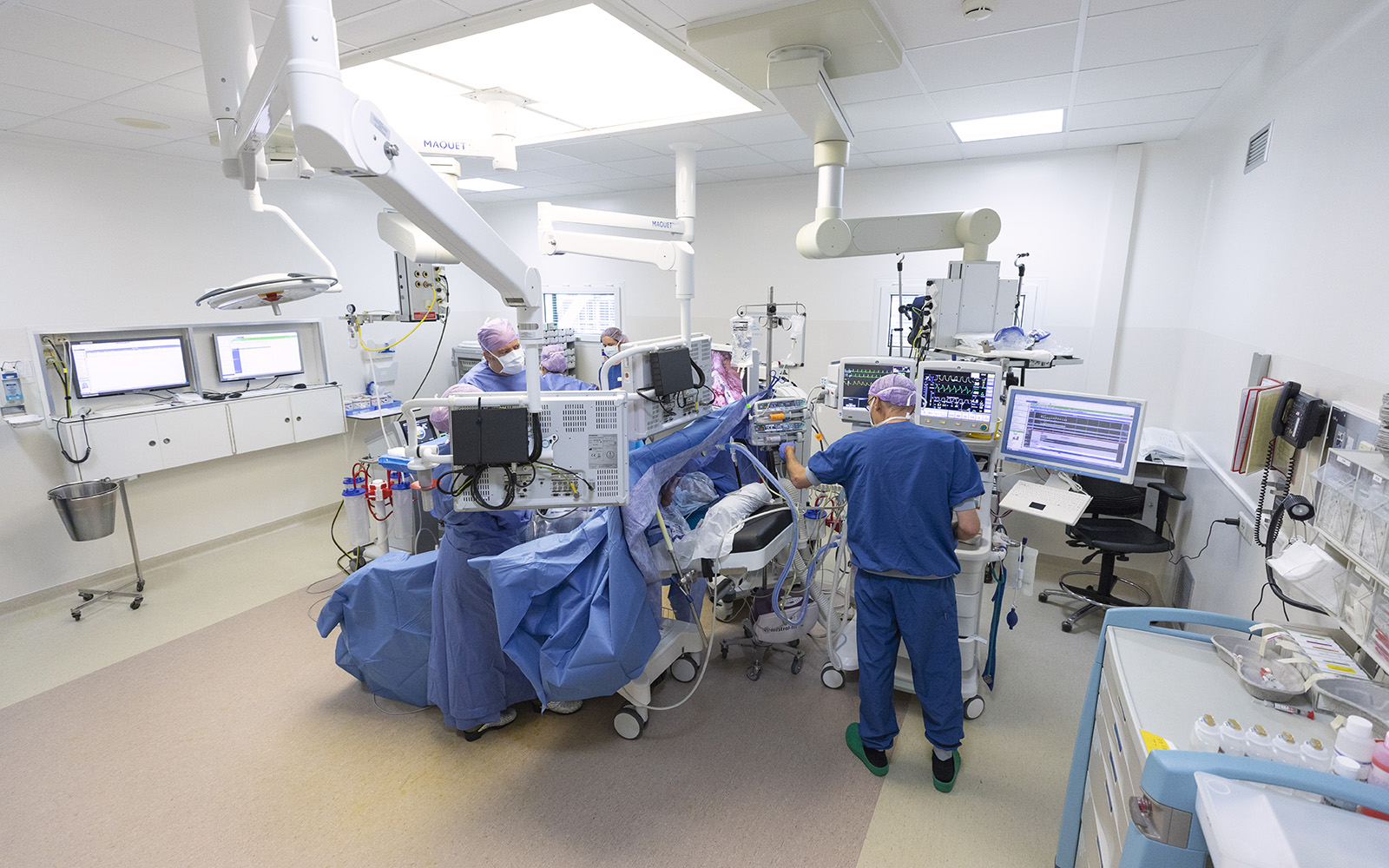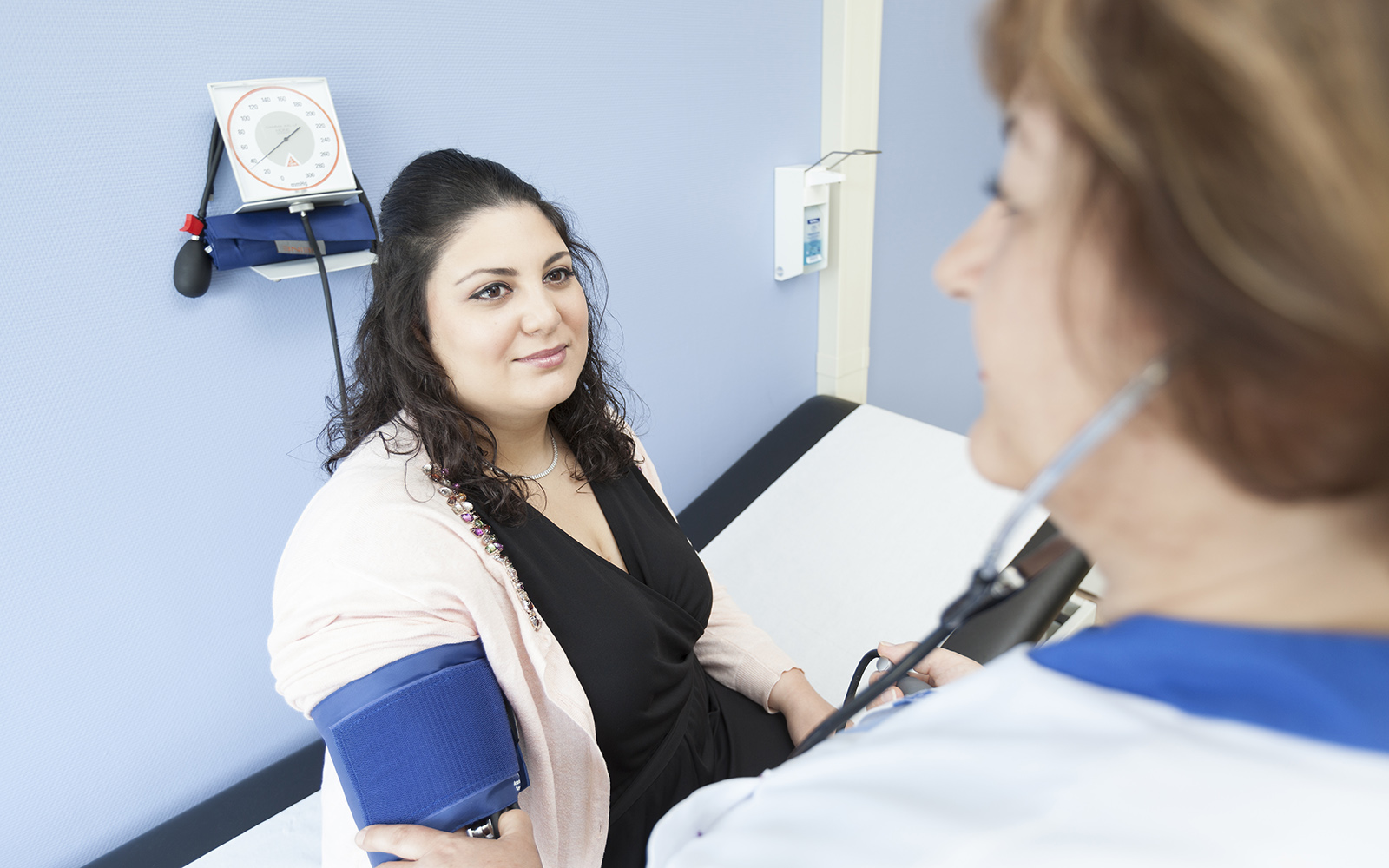Eating healthy when treating overweight
People who suffer from obesity hear all too often that it is their own fault. But the causes are complex. Obesity can lead to diabetes, cardiovascular diseases and other health problems. Stomach reduction surgery can be a godsend. Nutrition researchers at Wageningen University & Research (WUR) are working closely with hospitals to investigate the role of nutrition in this respect. How can vitamin deficiencies be prevented after surgery? Which foods, diets and lifestyles help prevent the patient from becoming overweight again?
The number of people who are overweight is increasing, with more than half of the Dutch population overweight and over 100,000 adults morbidly obese. Severe and morbid obesity can lead to a wide range of health problems, from high blood pressure, joint wear and tear and diabetes to cardiovascular diseases and certain types of cancer. On average, overweight people live six to eight years less – and then there is the impact obesity has on vitality and quality of life. It is therefore essential that obesity is treated effectively. But that’s not simply a question of moving more and eating less, stresses Eric Hazebroek. He is a professor by special appointment in Nutrition and Obesity Treatment at WUR and a surgeon specialised in metabolic surgery at the leading clinical hospital, Rijnstate, in Arnhem.
Own fault
‘Obesity is often seen as a side effect of modern society, a time when people are eating more and more unhealthily and exercising less and less. But not everyone gets fat. We don’t yet fully understand how it works,’ says Hazebroek. Genetics plays a role, as does our obesogenic environment, intestinal bacteria, medication, stress and an unstructured lifestyle. ‘It all starts with a genetic predisposition, in the same way that your height is already pre-programmed in your genes. We have to move away from the idea that being overweight is your own fault. Some people have very distressing stories. We mustn’t judge people, but rather work together to help them. That’s what we do with other diseases,’ says Hazebroek.
“Weight loss surgery can help, but people also need to change their lifestyles and diets so that they are more likely to maintain a healthy weight. We want to find out how we can improve treatment and what role nutrition and diet play in this.”
Weight loss surgery can be a godsend
Hazebroek is researching how dietary knowledge can be integrated into obesity treatment. As a surgeon, he mainly sees people who are severely to morbidly obese, who weigh anything from 120 to over 200 or 300 kilos. ‘Once you’ve reached that weight, it’s almost impossible to lose it. A diet often only results in a 5% weight loss in the long run, and for a person weighing 150 kilos, that’s usually ineffective.’

For some people, weight loss surgery is a godsend.
For some people, weight loss (stomach reduction) surgery is a godsend. ‘It’s not a quick fix, but rather a last resort and the options vary from person to person.’ In the past, gastric bands were used but they didn’t work very well in the long term. Nowadays, there are operations that involve making part of the stomach smaller and rerouting the small intestine. ‘This leads to changes in the entire digestive system and in the hormones that regulate your appetite and feeling of satiety. That increases the chances of a long-lasting effect.’
Gaining weight after surgery
After surgery, people lose an average of two-thirds of their overweight, and the risk of disease also diminishes. ‘The surgery can help, but people also need to change their behaviour and lifestyles so that they are more likely to achieve and maintain a healthy weight. Good coaching and effective treatment are essential for this.’ Vitalys, the obesity clinic at Rijnstate, offers people an intensive and long-term support programme both before and after their weight loss surgery.

People also need to change their behaviour and lifestyles so that they are more likely to achieve and maintain a healthy weight. Good coaching and effective treatment are essential for this.
Most people lose a lot of weight in the first year after the operation, after which their weight loss starts to stabilise. Over the next ten years, their weight will then increase by an average of 25%, says Hazebroek. ‘That really varies from person to person. Most people experience prolonged weight loss after surgery. But we want to find out how we can improve treatment for the group of people who gain weight again, and what role nutrition and diet play in this.’
Vitamin deficiency
‘The operation affects food absorption, and people experience vitamin deficiency. You can prevent this by taking special supplements and possibly also by sticking to a healthy diet,’ says Hazebroek. He and colleagues are investigating nutritional deficiencies and other factors in pregnant women. Approximately 80% of their patients are women, some of whom are of childbearing age. Hazebroek explains: ‘Weight loss after surgery reduces the risk of obesity-related pregnancy complications. But the body’s vitamin and nutrient requirements do change. We are collaborating with gynaecologists and nutrition scientists to research the impact of nutritional deficiencies on the mother and the development of the unborn child. Based on those results, we will be able to see if changes need to be made to obesity treatment.’
Nutrition Alliance
Rijnstate and WUR are partners in the Nutrition & Healthcare Alliance. In 2017, Rijnstate, Vitalys and WUR launched a joint research project on Nutrition and Bariatrics in the context of this alliance. Together they are committed to providing optimal nutritional care for overweight patients before and after their procedure. Eric Hazebroek was also appointed as a professor by special appointment in the context of this alliance. His inauguration will take place on 14 November 2019.
Photo in header & photo of Eric Hazebroek: Jurjen Poeles Fotografie
Read more:
- The inauguration of Eric Hazebroek
- Nutrition and obesity in Wageningen research
- Obesity dossier
- Read this blog in Dutch



Well done Professor Hazebroek. I feel that healthy eating habit will help obese patients maintain healthy weight and prevent vitamin deficiency after the surgery. Promoting healthy lifestyle and eating habit globally will prevent or possibly reduce the incedence of obesity in near future. It is always better to target prevention of any disease condition . I am a Public health Nutritionist already on the move in my community in Nigeria, very ready and eager to share my knowledge and skill anytime anywhere.
Thank you for sharing this info with us, we look forward to see more info from you.
https://sicalbert.com/am-i-fat-know-about-overweight-issues-and-bmi/
I was diagnosed of Type 2 DIABETES about 4 years ago. I was constantly dehydration and gained weight. I was placed on metformin but worsened over time. My doctor introduced me to Herbal HealthPoint and their successful Diabetes treatment, i immediately started on the herbal treatment. The Diabetes treatment reversed my Diabetes and i lost weights. Go to ww w. herbalhealthpoint. c om…………….